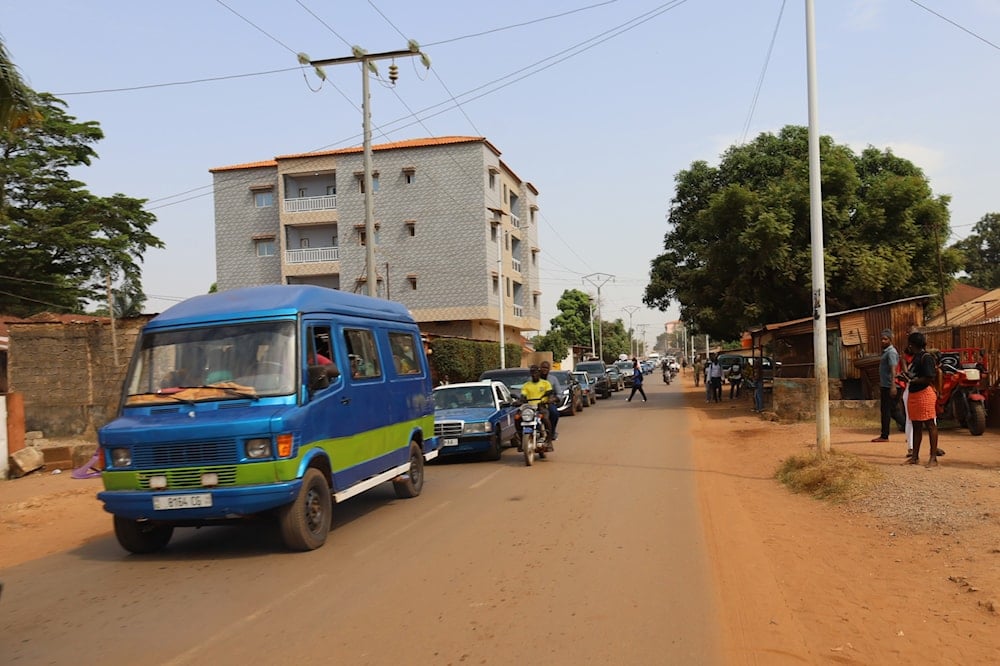Guinea-Bissau army appoints General Horta N'Tam as leader after coup
Guinea-Bissau's General Horta N'Tam has been appointed by the Army as interim leader after seizing power, suspending elections, and detaining President Embalo in the latest West African coup.
-

Cars drive on the street in Bissau, Guinea-Bissau, on November 26, 2025. (AP Photo/Darcicio Barbosa)
Guinea-Bissau’s military has appointed General Horta N'Tam as the country’s interim leader for a one-year term, a day after launching a military coup that disrupted national elections and led to the arrest of President Umaro Sissoco Embalo. The move marks the latest power shift in West Africa, a region increasingly destabilized by military takeovers.
General N'Tam, previously the army’s chief of staff, was sworn in on Thursday at the military headquarters in Bissau. In a statement following his appointment, he claimed the army acted to prevent operations aimed at threatening Guinea-Bissau’s democracy. "Necessary measures are urgent and important and require everyone's participation," he said.
The military reportedly detained President Embalo at the general-staff headquarters, where he is said to be “well-treated.” Also arrested were the interior minister, the chief of staff, and opposition leader Domingos Simões Pereira, who had been barred from running in last Sunday's election by the Supreme Court.
General Denis N'Canha, head of the presidential military office, accused “drug lords” of plotting to destabilize the country’s constitutional order through the introduction of weapons. He said the military had no choice but to intervene.
Borders shut, media silenced amid curfew
Guinea-Bissau was pushed into yet another political breakdown on Wednesday, as senior officers announced they had assumed authority over the state, shuttering borders and suspending the country's electoral process only days after citizens cast their ballots. The declaration came amid a dramatic escalation around the presidential palace, where bursts of gunfire signaled a sudden shift in control.
Witnesses described soldiers blocking the main routes to the palace and positioning themselves across the capital. The intervention unfolded before provisional results could be released, heightening fears that the vote, already mired in accusations of manipulation, had triggered a new confrontation among the country's entrenched political factions.
The military has seized power in a coup in Guinea-Bissau. President Umaro Embaló has been arrested after a disputed election.
— Africa Facts Zone (@AfricaFactsZone) November 26, 2025
The opposition was disqualified from contesting.
He dissolved the Parliament for 2 years.
His administration survived two previous coup attempts. pic.twitter.com/9ZLPxErOED
Following the coup, Guinea-Bissau’s borders were closed, and a mandatory curfew was imposed. The army also suspended all media programming, drawing criticism from press freedom advocates. Sadibou Marong of Reporters Without Borders said the blackout "amounts to a serious violation of the right to information." By Thursday, General Lassana Mansali confirmed that air, land, and sea borders had reopened.
The Economic Community of West African States (ECOWAS) issued a strong condemnation of the coup, reaffirming its zero-tolerance policy for unconstitutional changes of government. The UN Secretary-General, António Guterres, also expressed “deep concern” over the developments.

 3 Min Read
3 Min Read








